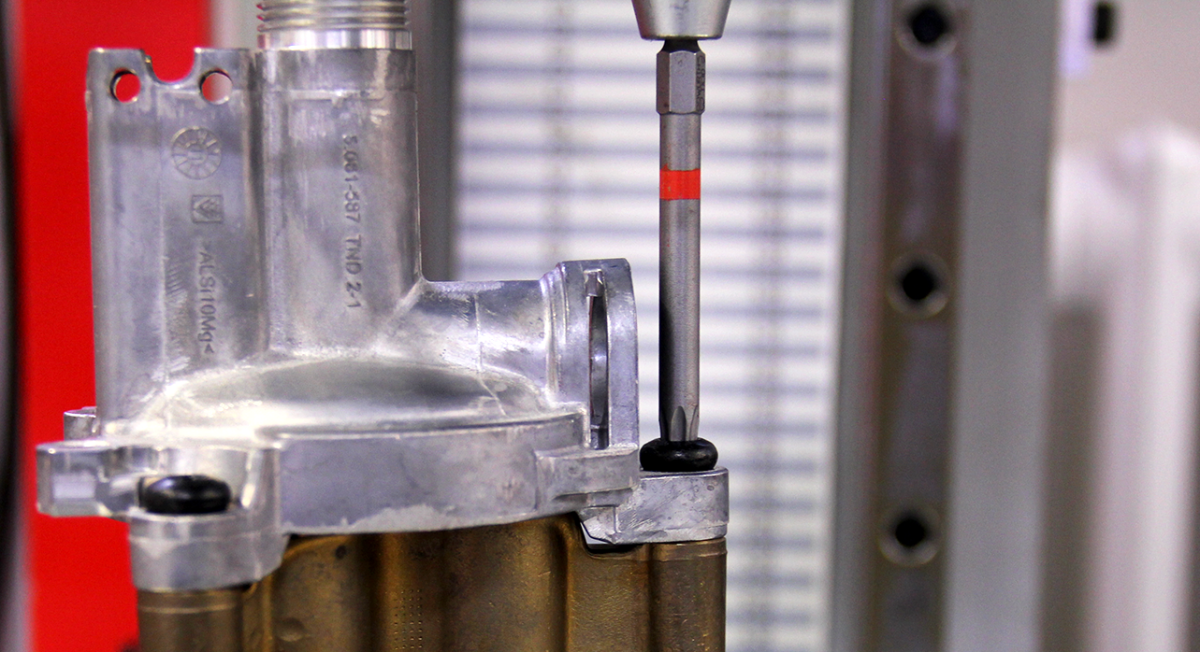Torque testing: Screwed together close to the application
We use this term to summarise various test methods that are used to measure or specifically apply torque and the rotation angle to screw connections.
The purpose of the test is usually to determine whether a certain torque meets the specifications. For example, a thread-forming screw must not exceed a defined limit torque for forming the mating thread. This ensures that the screw is easy to screw in the application and that sufficient clamp force is achieved.
Other applications include checking screws and nuts with a locking effect. Torque testing is used to ensure that a bolted connection which is bonded by preapplied adhesives, for example, has a sufficiently high breakaway torque to prevent the screw from automatically loosening.
As with friction coefficient testing, it often makes sense to validate high-risk screw joints in addition to the standardised tests by means of application-related torque tests on components that represent the real screwing situation.
Your benefits
- Testing at speeds of up to 1,500 rpm
- Testing from 0.05 Nm torque
- Flexibly usable equipment especially for testing customer components
- Specially developed process for determining the optimum tightening torque
- Vast experience in the field of torque testing
- We will be happy to advise you on the design of your application-related test.
The Würth Industrie Service GmbH & Co. KG collects and processes the personal data provided in the form in order to process the requested request for you. Please note the mandatory fields in the forms. The legal basis for this processing, the absolutely necessary data, is Art. 6 para. 1 lit. b DSGVO, implementation of a pre-contractual measure. The processing of data voluntarily provided by you is carried out on the basis of Art. 6 para. 1 lit. f DSGVO. Thereafter, processing is permissible which is necessary to safeguard our legitimate interests. Our legitimate interest is to have contact with you, our customers, to improve our consulting quality and to be able to contact you more easily in case of possible queries. The data collected will only be stored by us for as long as is necessary to process your enquiry and to contact you. They are then deleted.
Supplementary data protection information, in particular regarding your rights to information, correction, deletion, restriction of processing, objection and complaint, can be found in our data protection declaration.

